7 Lessons on Decision Making Learned from Poker
Make better life decisions by applying a professional poker player's insights who combines her experience with decades of research on decision-making.

I always considered chess the game of decision-making. You need to be strategic, count on your opponent's reaction, and plan ahead. But as Annie Duke, professional poker player and psychologist points out, chess is far from real-life decisions.
In chess, there is a clear good decision in every step.
In life there are many.
If you are lucky in chess it doesn't really matter on the course of the game. In life it does.
Life is much more like poker.
There isn't one good decision to make. We decide based on incomplete information. Sometimes if we make the right decision we still lose.
There is much to learn from poker about decision making not just because of the level of uncertainty but because of the frequency of decisions you need to make during a game:
"A hand of poker takes about two minutes. Over the course of that hand, I could be involved in up to twenty decisions. And each hand ends with a concrete result: I'll win or loose money."
Chess is not like life, poker is
Thinking in Bets translates the insights of making decisions besides a poker table to real-life situations. The author, Annie Duke is a former professional poker player who was playing at the highest level and won millions of dollars during her career.
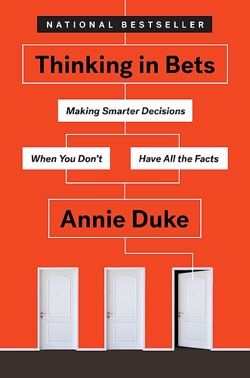
Thinking in Bets by Annie Duke
Making Smarter Decisions When You Don't Have All the Facts
1. Our bets are as good as our beliefs
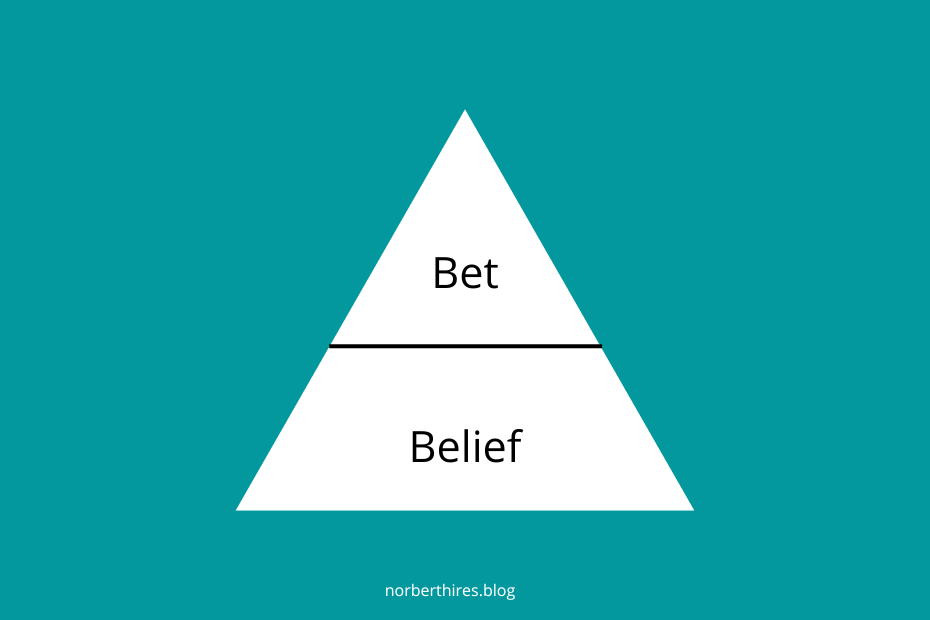
We make our bets based on the beliefs we have.
In poker, we have a belief in the strength of our hand.
In life, we have beliefs about the fitness of a presidential candidate when it comes down to voting, we have beliefs about the skills of the players of our favorite football club when it concerns sports betting, and we have beliefs about global trends if we look at our investment decisions.
Voting, betting, and investing are all influenced by our beliefs and the quality of our beliefs provides the foundation for our bets.
With better beliefs, we can make better bets.
"This is ultimately very good news: part of the skill in life comes from learning to be a better belief calibrator, using experience and information to more objectively update our beliefs to more accurately represent the world.
Beliefs not only impact our chance of making a good decision but they influence the way we process the world.
Beliefs impact how we see events.
When researchers showed the same football match to fans of the two teams separately and asked them which team committed more offenses, the fans always saw the other team breaking the rules more often.
2. Betting promotes better decisions
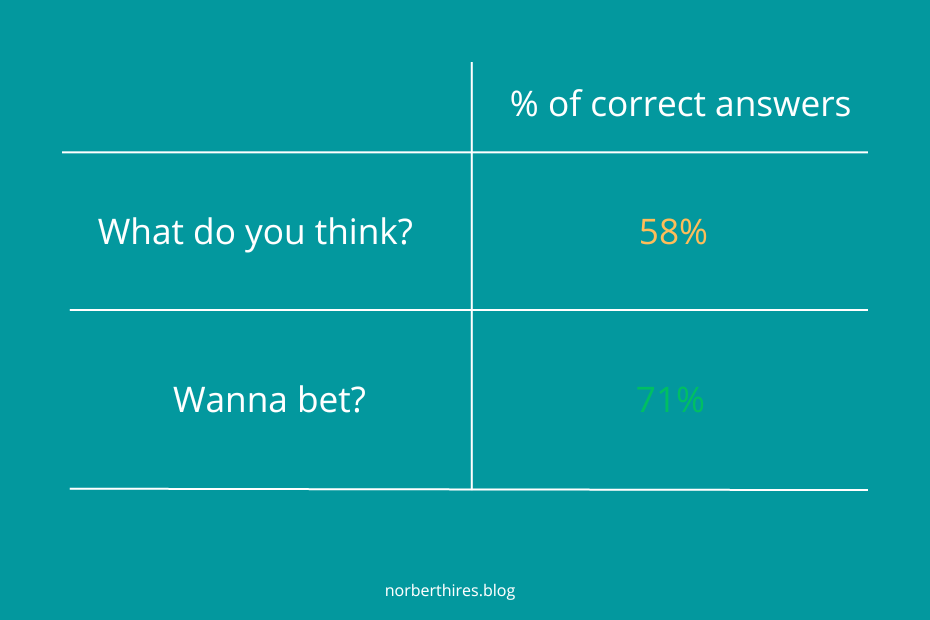
When they asked researchers to peer-review papers based on whether the results could be replicated, they were right 58% of the time.
When they asked them to bet money on their decision they were correct 71% of the time.
When someone asks us: "Wanna bet?, it reminds us of the fragility of our beliefs. Having skin in the game helps us accept uncertainty and fill as many gaps in our knowledge about the topic to make a well-informed decision.
Giving feedback or making a decision is often influenced by how others will interpret what we do/say. If we bet on that decision we are much more interested in actually being right since our money is on the line.
How to make better decisions about uncertain things?
- State confidence level: How sure you are about the fundamental beliefs behind your decision?
- Acknowledge unknowns: What is the information you do not possess? What are the changing factors?
- Be ready to change your mind: If new information comes to the table, update your beliefs.
3. Experience is not a good-enough teacher
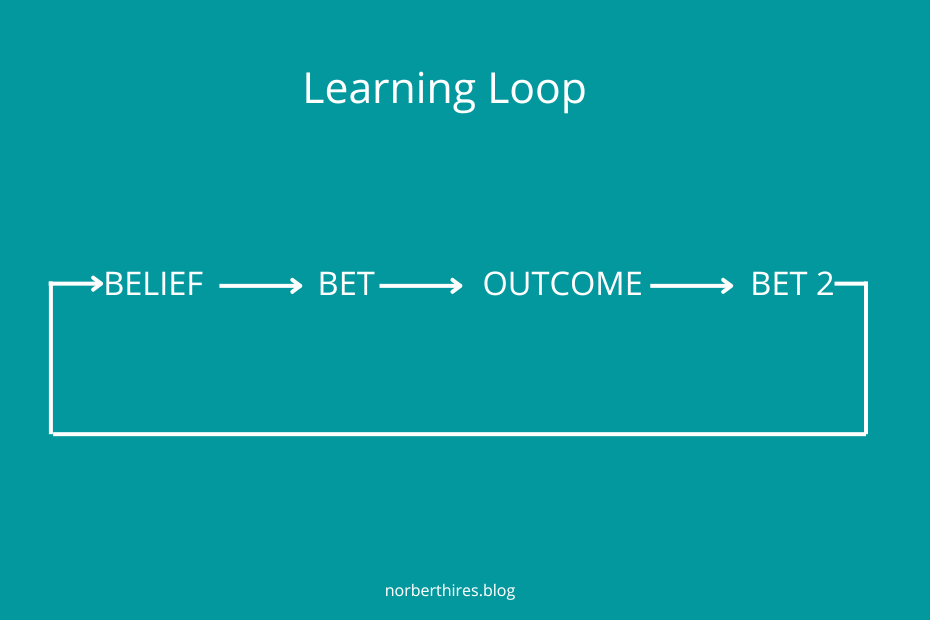
In the casino where the author played poker regularly, there was a guest, Nick the Greek. He already played there for 4 years.
When he won he accredited his success to his perfect strategy.
When he lost it was all bad luck.
Nick regularly lost even against a rookie (at that time) like Annie Duke.
If experience would be sufficient to get better at making decisions, then Nick should have been hard to beat.
So what did he miss out on?
"The answer is that while experience is necessary to becoming an expert, it's not sufficient. Experience can be an effective teacher. But, clearly, only some students listen to their teachers."
Nick didn't update his fundamental belief about the game during the four years he was playing at the Chrystal Lounge. He did not use his experience to actually learn, because doing so would require him to change his mind and make better bets next time.
Experience alone is not enough.
Or as Aldous Huxley writes:
"Experience is not what happens to a man, it is what a man does with what happens to him"
4. Ditch the self-serving bias
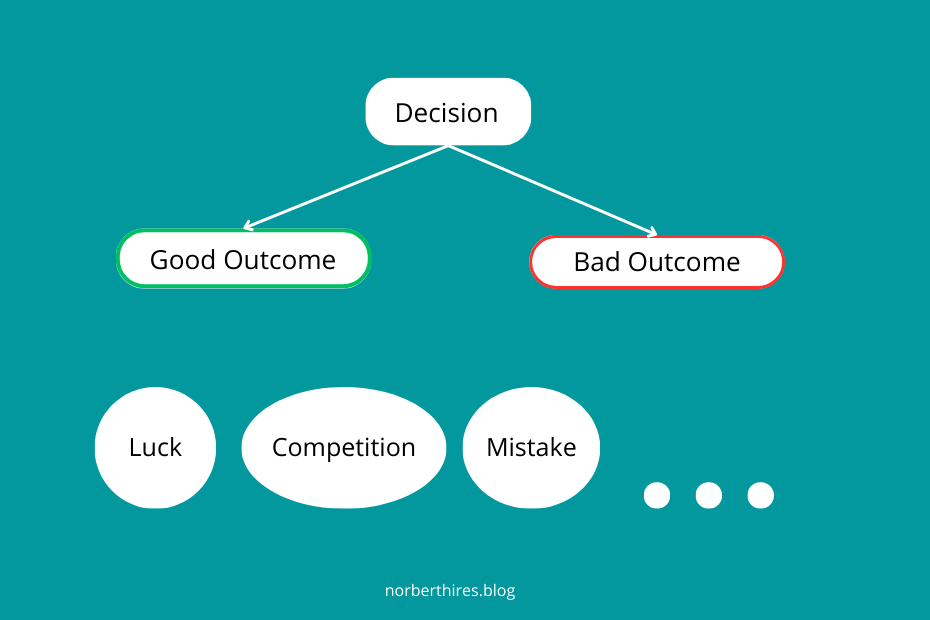
Self-serving bias is our impulse to interpret events in a way that preserves our self-esteem.
Self-serving bias was the bottleneck that prevented Nick the Greek from learning from his mistakes and it is the tendency that makes it harder for us to look for the real reasons behind our bad decisions.
We experience self-serving bias when we take credit for our good decisions while finding a scapegoat for our bad decisions in the form of bad luck, competition, or any other excuse.
In reality, we need to accept that not all good things happen to us because we made the best decision (we can be lucky), but often we make a detectable mistake when it comes to our decision that leads to a bad outcome.
Letting go of the self-serving bias helps us to learn more and make better decisions in the future.
5. Groups accelerate learning
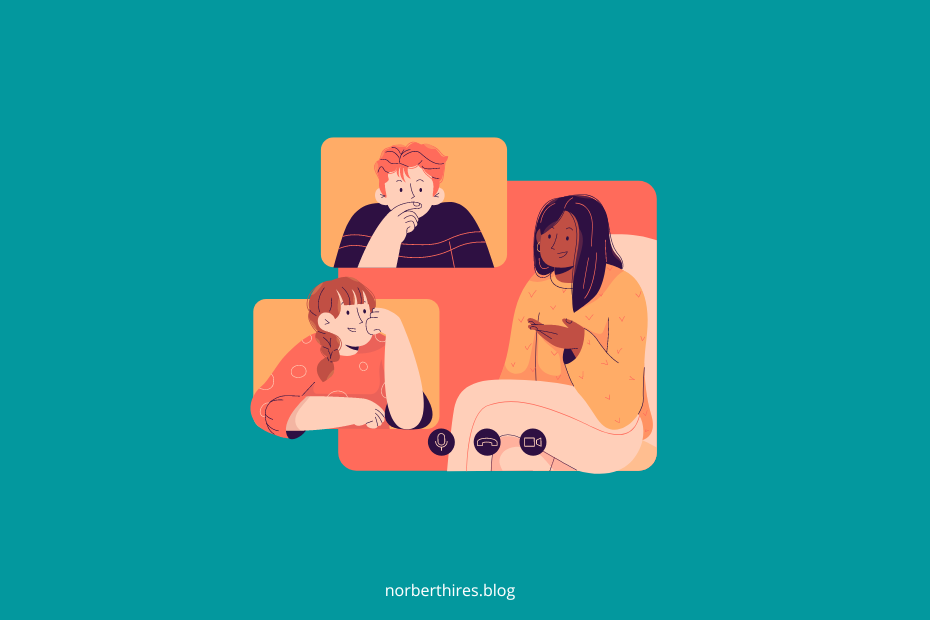
"...it is easier to make these changes if we aren't alone in the process. Recruiting help is key to creating faster and more robust change, strengthening and training our new truthseeking routines."
The author had access to a group of professional poker players early in her career. She accredits much of her learning to this group, in particular, the group helped her:
- resist her urge to vent and blame bad luck for her losses,
- ask strategic questions she can learn from,
- instead of bragging, find where she made a mistake even when she won,
- engage in exploratory instead of confirmatory thoughts.
Confirmatory thought promotes the celebration of one's own beliefs without questioning them while exploratory thought encourages open-mindedness and looking for alternative angles where we could make a better decision.
Though joining a group alone is not enough to promote truth-seeking. The group should consist of diverse viewpoints. There should be voices that agree with you with voices that constantly challenge you.
Justice Powell who served as associate justice for the Supreme Court for example purposefully hired liberal clerks despite being a democrat to challenge himself.
6. Analyse decisions before the outcome is known
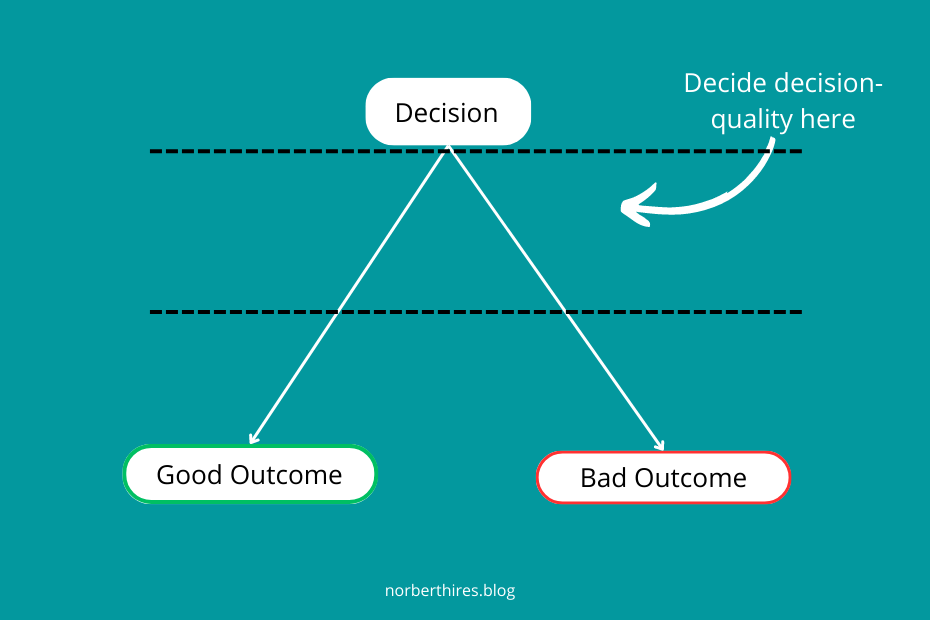
We often treat decisions as good or bad based on the results. However, it is highly possible that making a decision that led to a negative outcome was actually the right call to make.
Uncertainty and luck are always involved in the results.
To filter them out from the decision-making process and help us make the best decision we should analyse our decision before the outcome is known.
"We treat outcomes as good signals for decision quality, as if we were playing chess. If the outcome is known, it will bias the assessment of the decision quality to align with the outcome quality.
7. The 10-10-10 method of decision making
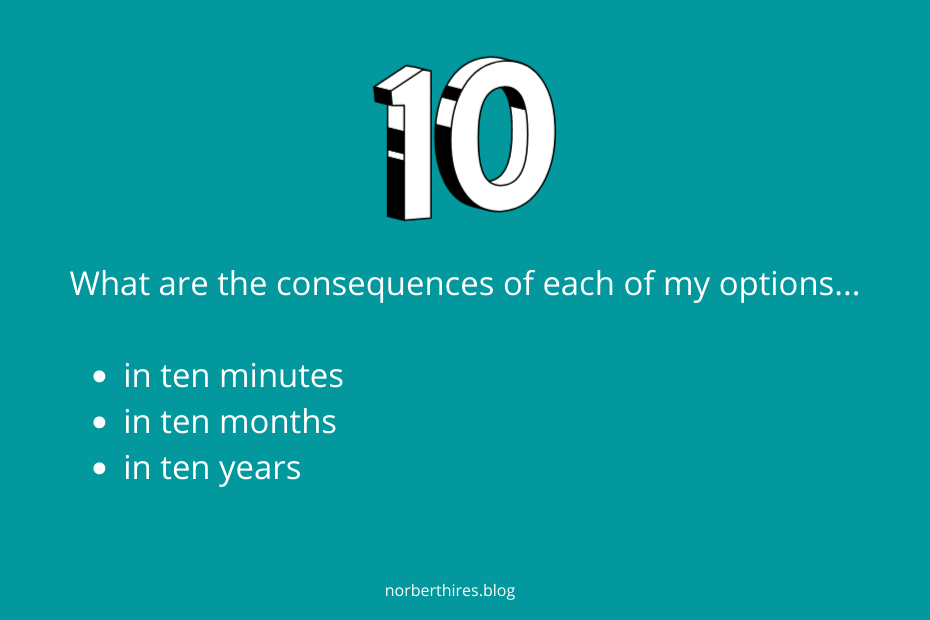
Mental time travel can help us bring new perspectives into our thinking process.
Business journalist, Suzy Welch created a framework called "the 10-10-10 method", where you should examine your decisions based on their consequences over time.
"Every 10-10-10 process starts with a question. ...
What are the consequences of each of my options
- in ten minutes?
- In ten months?
- In ten years?"
8. Use the Ulysses pact to control yourself
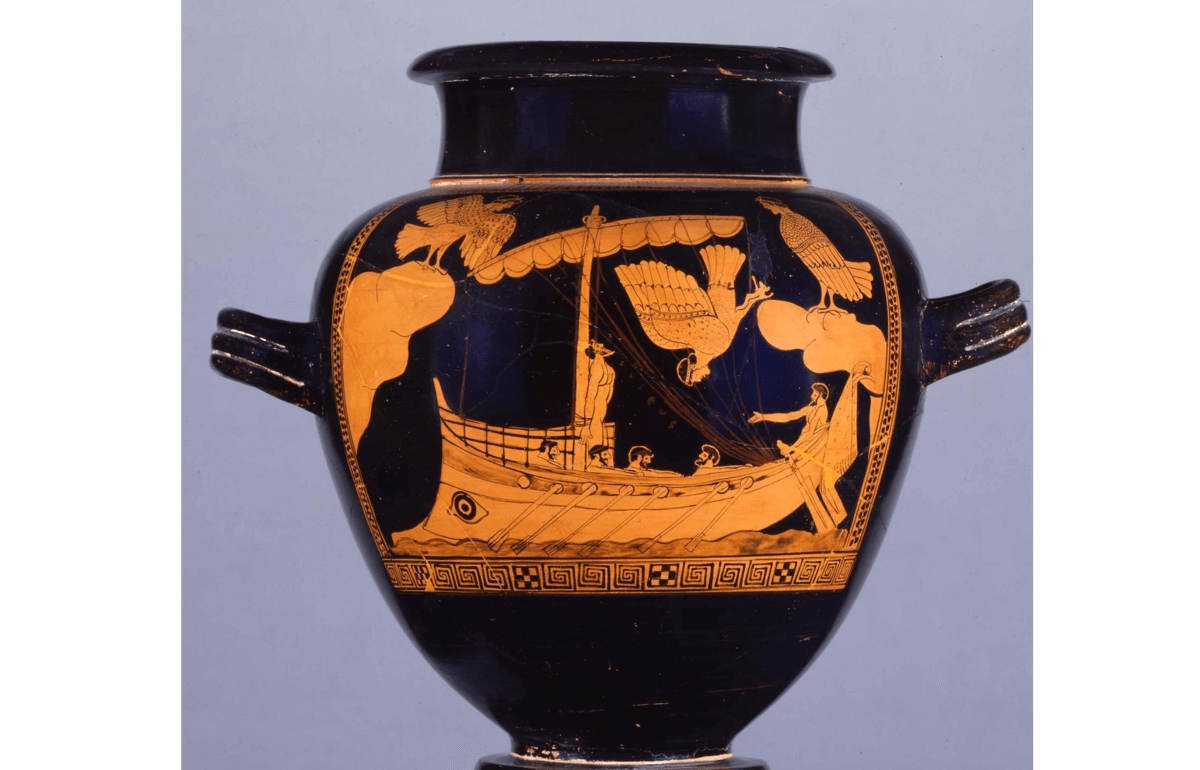
We are not always in the right mood to make good decisions. Emotions cloud our judgments, and a myriad of cognitive biases nudge us to play one more round despite clearly having a losing day.
The author suggests forming a "Ulysses pact" with ourselves to control our losses when we lack the willpower to stop.
In Homer’s epic Odyssey, on his way home from Troy, Ulysses approaches the shores of the sirens. It is known that the siren's irresistible song makes sailors end their lives by jumping into the water, but Ulysses wants to hear the famous song.
He asks his crew to put wax into their ears and tie himself to the mast of the ship. He listens to the song of the sirens this way while eliminating the risk of taking his own life.
We can insert similar decision locks into our lives to assist us when we lack willpower.
Some examples:
- "A lawyer attending a settlement negotiation can make a precommitment, with the client or other lawyers on their team, as to the lowest amount they would accept in a settlement (or the highest amount they would agree to pay to settle).
- Home buyers, understanding that in the moment they might get emotionally attached to a home, can commit in advance to their budget. Once they decide on a house they want to buy, they can decide in advance what the maximum amount they'd be willing to pay for it is so that they don't get caught up in the moment of the bidding."
Takeaways of Thinking in Bets in eight points
- Our bets are as good as our beliefs
- Betting promotes better decisions
- Experience is not a good-enough teacher
- Ditch the self-serving bias
- Groups accelerate learning
- Analyse decisions before the outcome is known
- The 10-10-10 method of decision making
- Use the Ulysses pact to control yourself

Thinking in Bets by Annie Duke
Making Smarter Decisions When You Don't Have All the Facts
Thinking in Bets Summary
Thinking in Bets by Annie Duke is a book that explores the insights and strategies of decision-making in real-life situations, drawing parallels from the world of professional poker. Duke, a former professional poker player, emphasizes that life is more like poker than chess, as decisions are made with incomplete information and sometimes even the right decisions can result in losses.
The book discusses the importance of beliefs in decision-making and how they shape the way we process the world. It also highlights the benefits of betting on decisions to promote better decision-making and the value of joining diverse groups to accelerate learning.
Thinking in Bets offers practical advice on analyzing decisions before outcomes are known, using the 10-10-10 method for decision-making, and creating Ulysses pacts to control impulsive decision-making.
Overall, "Thinking in Bets" provides valuable insights for improving decision-making skills in uncertain and complex situations.



